Brisbane’s hungry games: Budget blow-outs, scrapped plans in Olympics preparation
The 2032 Olympics are supposed to be the budget Games. But nearly two years on from winning the bid, the benefits touted by organisers risk being squandered.
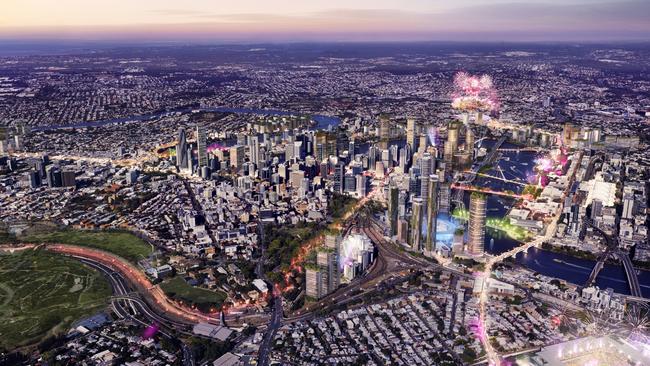
Remember, these are supposed to be the budget Games, entrenching the “new norm” to keep costs down and create lasting value for the Australian taxpayer.
The organisers went in with three priceless advantages: 11 years to prepare after the International Olympic Committee accepted the Brisbane bid in mid-2021; overwhelming public support for the venture; and alignment of the federal and Queensland governments to share governance and split costs.
Nearly two years on, it’s fair to say that those benefits risk being squandered.
The airy talk of a generational opportunity to re-engineer the transport infrastructure of Queensland’s thickly populated southeast corner with fast rail and new motorways remains just that: talk. No plans, let alone specific project details, have been unveiled.
The 50-50 funding deal Premier Annastacia Palaszczuk extracted from then PM Scott Morrison in the countdown to the IOC vote on the hosting rights, deftly wedging him, has been replaced by a clunky arrangement for the commonwealth and the state to go their separate ways on developing key Olympic venues.
While the Organising Committee for the Games, OCOG, has been constituted and staffed at the board and senior executive levels, the independent agency that was to oversee the infrastructure program, the Olympic Co-ordination Authority has been ditched even though it was part of the sell to the IOC.
And the absence of a cogent explanation from Palaszczuk of the 170 per cent blowout in the preliminary costings of the $2.7bn Gabba stadium rebuild – now solely a state responsibility – is troubling when transparency is requisite to taking the public along for the inevitably bumpy ride to 2032.
Her stony refusal to elaborate does not engender confidence.
Morrison’s former special envoy on the Olympics, Coalition frontbencher Ted O’Brien, told parliament this week: “In securing the Games, all parties in the Australian bid team promised to honour the International Olympic Committee’s new norms. We’d keep the cost of sporting facilities down by leveraging mainly existing facilities and avoiding any new, flashy, multibillion-dollar projects.
“The fiscal constraint was more than a pitch to the IOC; it was also an agreement with the Australian public, particularly the people of Queensland, that their taxpayer money would not be used in a poor way.”
The justified jubilation at landing Australia’s third Olympics in two generations is giving way to a sobering realisation that securing them was the easy bit. The regionalised Brisbane Games may be trumpeted as “cost neutral”, but that is limited to the operational side of staging the event, not the capital works outlay to construct or upgrade venues and to connect the event and athlete accommodation hubs dotted across the Sunshine Coast, the sprawling Queensland capital and the Gold Coast.
As OCOG president Andrew Liveris tells Inquirer: “Past references to the cost-neutral delivery of Brisbane 2032 are in relation to Organising Committee spend only. The Organising Committee’s cost will be offset by our commercial revenue program, ensuring Brisbane 2032 is not a burden on taxpayers.”
According to the final submission to the IOC by bid partners the Queensland government, Brisbane City Council and Southeast Queensland Council of Mayors, the operating budget is $4.94bn in 2021 dollars, with domestic sponsorships and ticket sales to raise $3.03bn and the IOC kicking in $950.7m from international broadcast rights.

In addition to funding Games services and operations, the spend would cover all other running costs including $605.7m for temporary infrastructure and security outlays of $70.4m, balancing the ledger.
The revised deal between Palaszczuk and Anthony Albanese is restricted to sports venues. The existing 42,000-seat Gabba will be demolished after Australia and England play there for cricket’s Ashes in late 2025 and replaced by a new stadium for 50,000 to host Olympic athletics and the opening and closing ceremonies. Despite a $128m grandstand upgrade in 2005 and $35m overhaul of the corporate and media facilities in 2020, the ground is manifestly outdated; one way or another, there was a strong case to redevelop it.
Yet as reported by this masthead, Albanese baulked at further federal participation in the project, committing instead to the $2.5bn Brisbane Arena where a drop-in pool will be used for the swimming competition. The plan is far from risk free: in its present form, the 17,000-seat hall will be a tricky build above the busy Roma St railway yard on the CBD fringe.
A further 16 venues will be constructed or revamped at a cost of $1.87bn, pushing the agreed expenditure by the two Labor governments to $7bn, divided equally. How much are they on the hook for when associated amenities and transport infrastructure are priced in? The available information is sketchy, to say the least.
Take rail. Palaszczuk’s signature public works project to date, the $6.88bn Cross River Rail due to open in 2025, is a subway designed to unlock Brisbane’s bottlenecked commuter train system. In doing so, the way will be cleared for fast rail north to the Sunshine Coast and potentially down to the Gold Coast, linking busy regional airports at Maroochydore and Coolangatta with the city gateway. One often-cited ambition is for the Olympics to be the vehicle to achieve this.
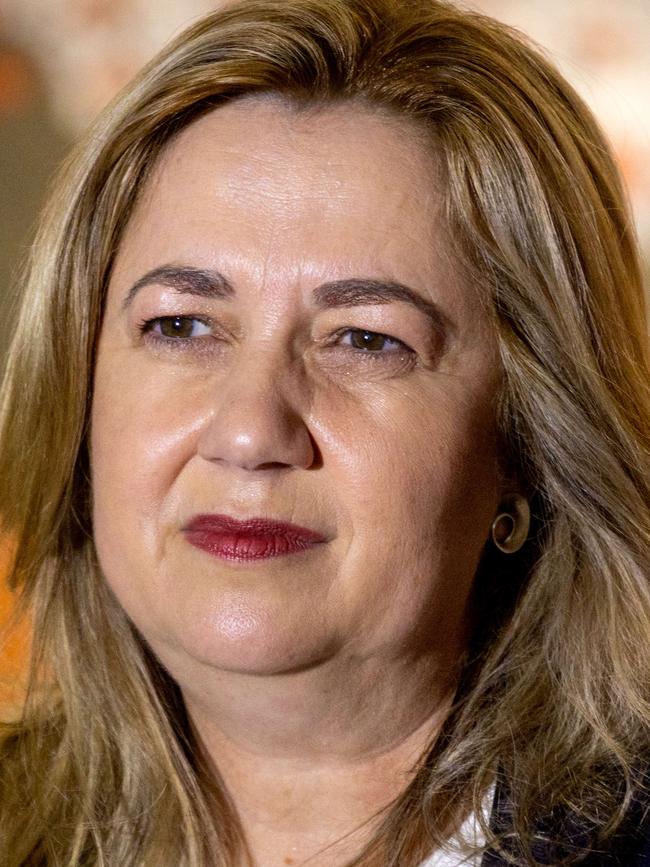
Addressing parliament on Tuesday, Sunshine Coast-based O’Brien said the then Coalition government had allocated $1.6bn to the new Maroochydore-Brisbane line in its final budget last year, half the project’s projected cost. Federal Labor had since frozen the funding, he charged, while at the state level Palaszczuk’s outfit had “sought to publicly rubbish the very business case on which their own people had worked”.
His point is that when LNP MPs and senators from Queensland lined up behind the bid, “we made it crystal clear that the primary motivation was improved public transport, in particular rail”. The Morrison government also committed $1.12bn to upgrading the Brisbane-Gold Coast line (which actually ends short of the glitter strip, connecting to a tram service at Robina). Rejecting O’Brien’s claims, a spokesman for the federal Department of Infrastructure, Transport, Regional Development, Communication and the Arts said both allocations had been carried over in Jim Chalmers’ inaugural budget last October.
This is where the Olympic Co-ordinating Authority, or something like it, might weigh in, reprising part of the architecture of Sydney 2000. The Olympic bid papers describe an infrastructure pipeline over the coming two decades, emphasising the long-run gains. “To support effective delivery of legacy over the 10+10+ years program, OCA will be responsible for legacy oversight,” reads a report delivered to the IOC delegates. “OCA will oversee whole-of-government and public-private sector co-ordination. OCA will continue to assure and support legacy delivery post-Games within this integrated legacy delivery framework.”
So what’s happened to the agency? Federal Infrastructure Minister Catherine King ducked the question, with her office maintaining it was a matter for the Queensland government given the commonwealth had not been party to either the Games bid or the Olympic host contract with the IOC. At the same time last week, Palaszczuk’s spokesman would say only: “Games partners have agreed in principle to the establishment of a co-ordinating agency.”
The notion that it be independent of either government is now officially dead. Deputy Premier and point man for Games infrastructure, State Development Minister Steven Miles, confirmed on Thursday the functions of an OCA would be brought in-house by the state because “a new bureaucracy … would just soak up resources”. He could have been quoting former Australian Olympic Committee boss John Coates, the man who helmed both the Brisbane 2032 and Sydney 2000 campaigns and an influential director of OCOG, who told the organising committee’s board recently that the proposed co-ordinating agency was unnecessary, “another layer of government bureaucracy”.
Coates believes further savings and efficiencies can be driven through the IOC’s existing Games Optimisation Group, on which he also sits.
Yet Morrison is adamant an OCA or something like it was “critical” to the shared-governance deal he sealed with Palaszczuk in the frenetic countdown to the IOC decision on the hosting rights in July 2021. Even then, the Gabba was no certainty to be the central venue, the ex-PM says. For example, there was interest from the Council of Mayors and Brisbane City Council in a proposal for the Albion Park trotting track, on the opposite side of Brisbane River, to be reconfigured with temporary stands and converted into a permanent boutique stadium seating about 20,000 after the Games.
Brisbane Lord Mayor Adrian Schrinner didn’t know for sure that the Gabba was Palaszczuk’s pick until she announced the rebuild, then budgeted at $1bn, and demanded the feds stump up for half. It was seen as a ploy by the Premier to box Morrison in; she warned the bid could fall over at the 11th hour if the governments were not in sync. Morrison’s counter was equally audacious: Canberra would pick up 50 per cent of the tab all right – but the deal was for the whole shebang of funding the Games, and the commonwealth would have a commensurate say on how the money was spent.
“We wanted to see it work,” he says. “The state government clearly were not capable of doing it on their own, as the NSW government had been back for the 2000 Olympics … and therefore they were seeking the federal government’s involvement at an unprecedented level, which we did in good faith based on shared governance, not just shared funding.”
Morrison insists that he never committed to the Gabba, though it was in the mix. He is noncommittal on whether he would have accepted the 170 per cent blowout in the indicative costs revealed by Palaszczuk last month or whether he would have pulled commonwealth support for the project, as Albanese did.
It’s clear, he says, that the wider Games deal has been revised by the Labor leaders and the obligation is on them to justify the new piecemeal arrangement to fund and develop the Games’ two showcase venues. “What we were proposing was a shared governance of these arrangements,” he says. “What the Prime Minister and the Premier have agreed to do is for them explain and why that’s better.”
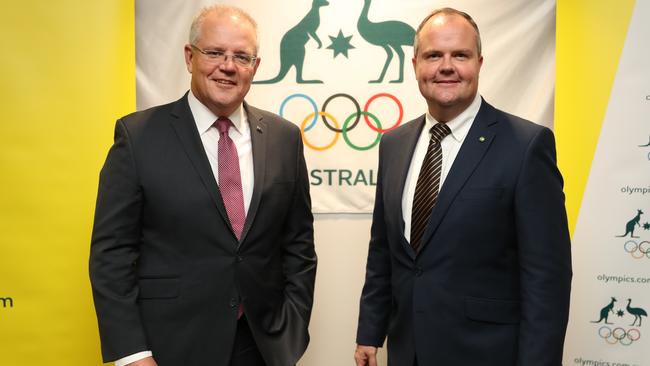
O’Brien complained to parliament: “We raised our eyebrows when the state government thought the Gabba upgrade would cost $1bn. Now we find out it’s going to cost $2.7bn.
“That’s not the only multi-billion dollar venue that’s going to be created through this.
“As for a shared governance model, that’s no longer happening. As for maximising participation for the private sector, that’s not going to happen either … it’s all going to be run by the Queensland government.
“We have a series of agreements, to which I was personally a part, all of which are being changed, breached. I give a warning to all governments: don’t breach the faith with the Australian people on this one.”
To date, Palaszczuk has refused to detail how she arrived at the initial $1bn costing for the Gabba or the near-tripling of the price tag, beyond noting that the prices of “commodities and everything” have soared post-pandemic. True enough.
Still, there’s scepticism among those in the know in Brisbane’s booming construction sector that inflation and supply chain issues could account for such a staggering increase. Adrian Dwyer, CEO of thinktank Infrastructure Partnerships Australia, says cost overruns generally happen during the construction phase of major projects, especially in the earthworks, a notoriously tricky component to cost.
He says the real worry isn’t the Gabba or OCA, but the need to crack on with the big-ticket transport infrastructure. “I’m less concerned about what the governance architecture is than seeing something concrete in place in terms of planning and delivery … of the transport connections. I’m much more concerned about action,” Dwyer says.
In putting his reservations on record, O’Brien was careful to keep them in perspective. A “bipartisan unity ticket” secured the Games and he remained “proud and supportive of Australia hosting the world’s greatest sporting event,” he told the house.
It’s hard to disagree. The 2032 Olympics will be a boon for Brisbane and the nation if they live up to their promise. It is in all our interests that the very most is made of this golden opportunity.


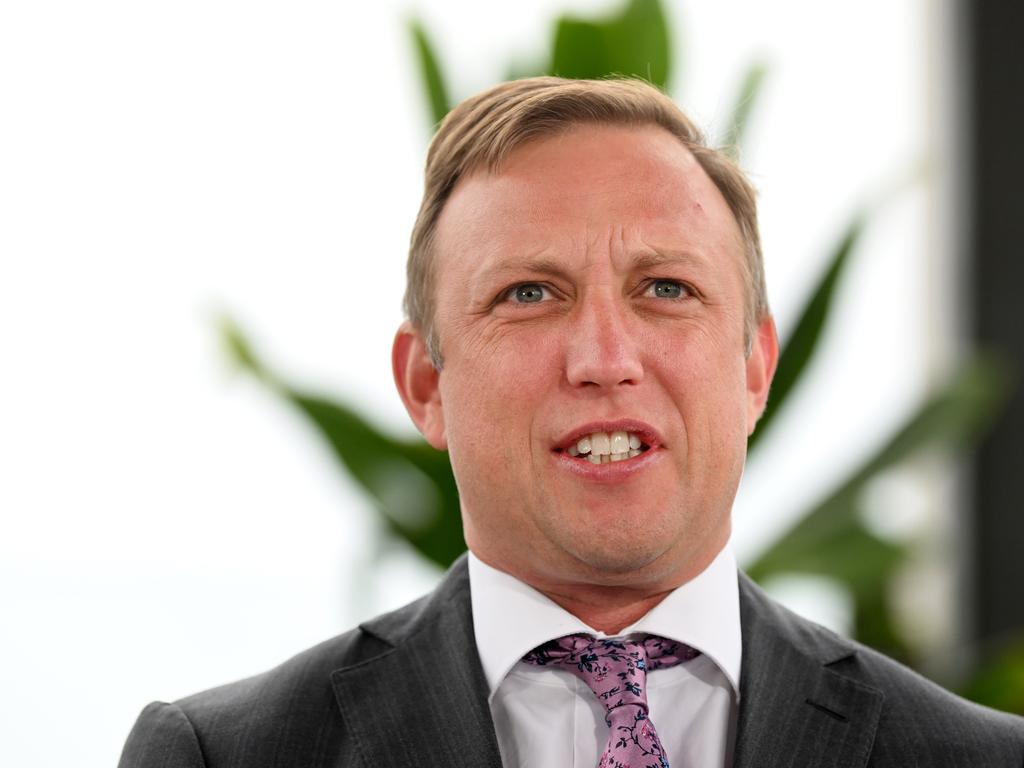

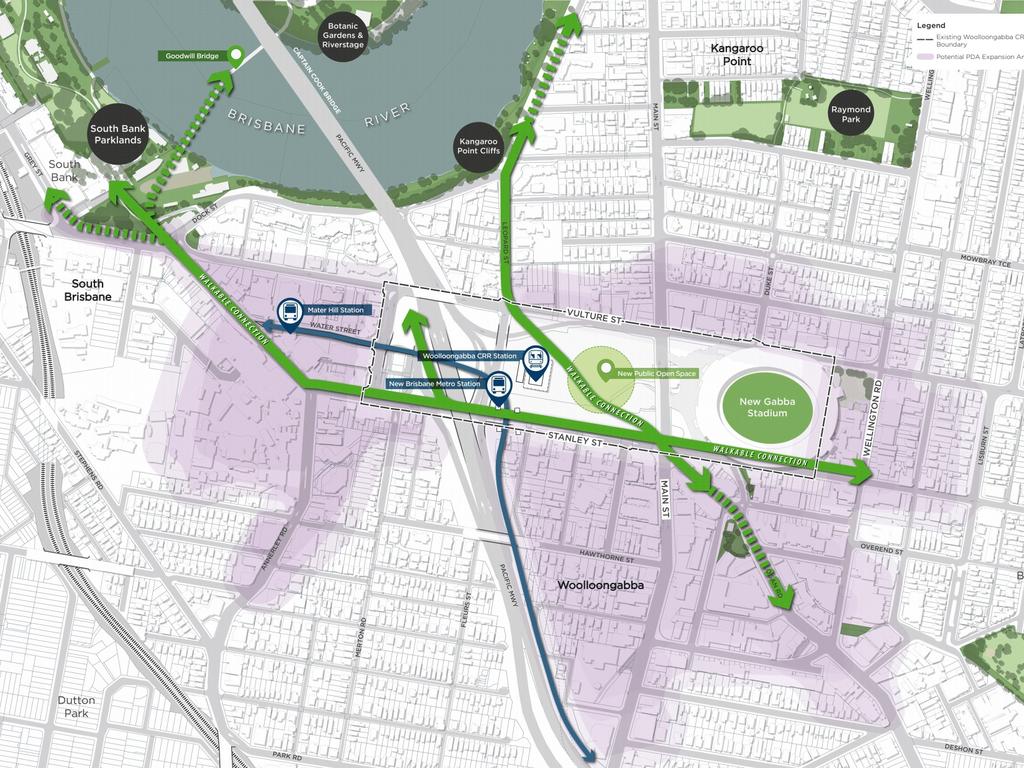
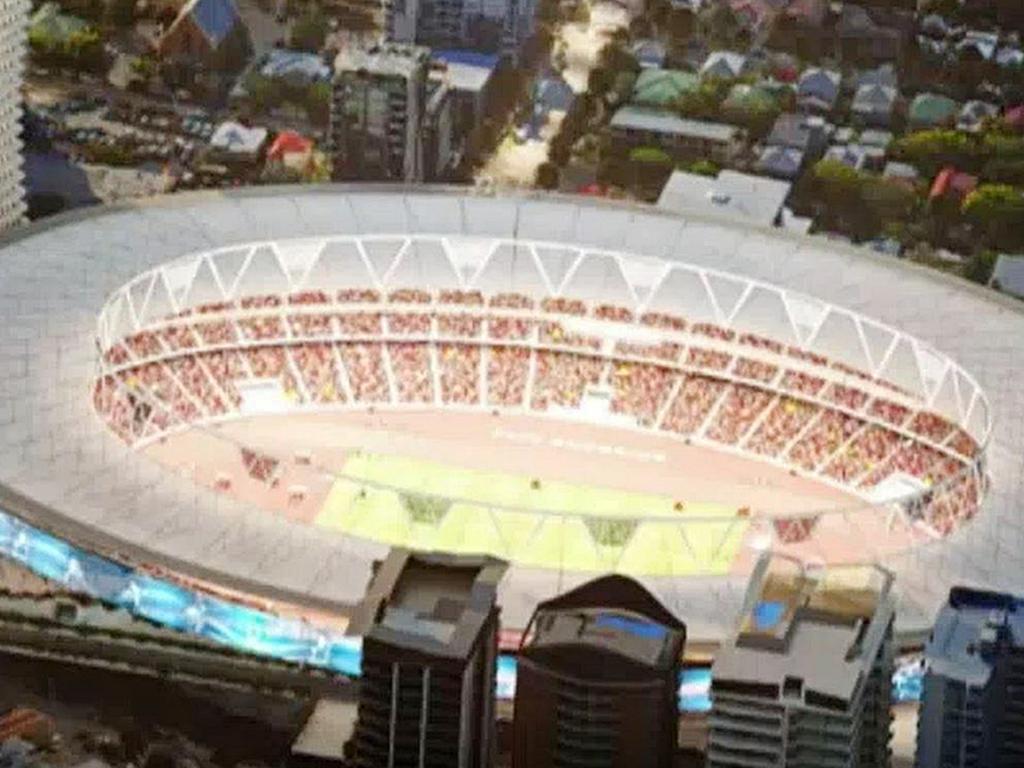
It is still early days in the race to ready Brisbane for the 2032 Olympics but that doesn’t mean we shouldn’t take stock of where the starters are positioned.